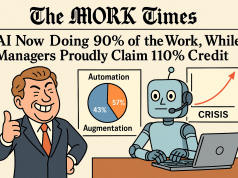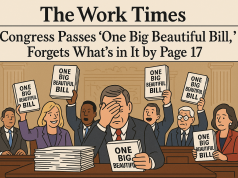As the gig economy burgeons, transforming how we understand work, workers, and the workplace, the concept of mentorship is undergoing a significant evolution. The linear career trajectory familiar to previous generations, with its clear-cut pathways and long-term employer loyalty, is fading. Today’s gig workers frequently face a labyrinth of short-term engagements, diversified income streams, and rapidly shifting roles. Within this new reality, mentorship has emerged as a critical lifeline—a tool to guide, inform, and empower those navigating the waters of gig employment.
For the gig worker, mentorship represents a beacon in a sea of uncertainty. The need for guidance has not waned; instead, it has grown more complex. Seasoned professionals who step into mentoring roles must now tailor their advice to a landscape where job roles are fluid and tenure is often brief. They must help gig workers discern not only the skills necessary for success in individual projects but also those required for sustainability in gig work at large. Mentors in the gig sector must adopt a multifaceted approach, coaching on work-related skills while also offering guidance on networking, personal branding, and maintaining a balanced portfolio of gigs.
The impact of effective mentorship in the gig economy is profound. Workers who receive guidance report higher levels of job satisfaction and career growth. Mentorship can act as a catalyst for professional development, helping individuals refine their craft, identify niche opportunities, and strategically navigate career pivots. In a sphere that sometimes isolates individual contributors, mentorship also fosters a sense of community and continuity. It builds bridges where traditional workplace bonds might be absent, creating informal networks that support and sustain the gig workforce.
For mentors themselves, the act of guiding others is also beneficial. Sharing expertise and experience not only enriches the community but also enhances the mentor’s own professional profile and network. Moreover, the process of mentoring can provide fresh perspectives and insights, allowing mentors to stay abreast of changes and trends within the industry.
Despite these benefits, however, mentorship in the gig economy is not without its challenges. The absence of organizational infrastructure often found in traditional employment means that mentorship opportunities are not as readily facilitated. Therefore, both mentors and mentees must be proactive in seeking and establishing these relationships. Emerging mentorship models are leveraging online platforms, social media, and professional networks to connect gig workers with mentors. Virtual roundtables, webinars, and collaborative projects serve as conduits for these valuable exchanges.
As a thought leader in the freelance community, the importance of cultivating these mentorship channels cannot be overstated. In redefining the mentorship paradigm, it is imperative to recognize that the keys to success in the gig economy differ from those in established careers paths. As gig work continues to rise, reimagining mentorship could very well be the cornerstone of building resilient, adaptive, and vibrant professional lives for those who choose the flexibility and dynamism of the gig road.
Join us as we continue to explore the most effective practices for mentorship within this burgeoning sector. Through conversation, collaboration, and shared stories of success, we’ll illuminate the path for gig workers and mentors alike, ensuring that the gig economy is rich with opportunity and growth for everyone involved.




























